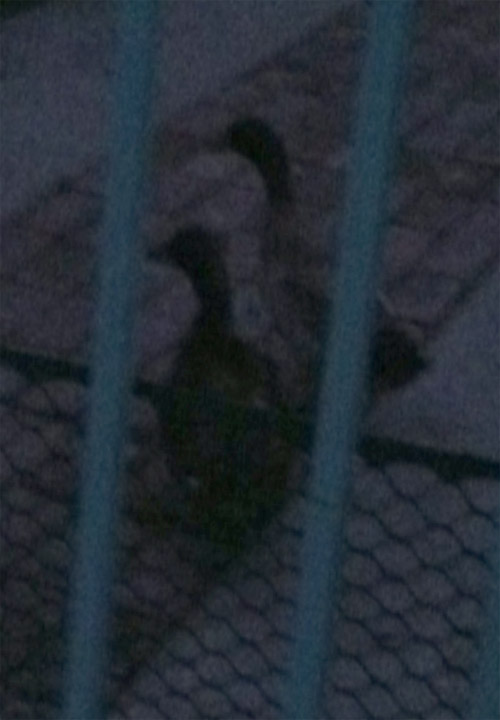English has no shortage of words with double letters, and even letters that you wouldn’t expect to repeat one after the other sometimes do — for example, avijja (a Buddhist term meaning “ignorance,” more commonly spelled avidya) and huqqah (a rare, alternate spelling of hookah). But not too long ago, I got to wondering whether English has any words with three of the same letters in row.
 |
 |
| the homosexual beer cozy |
 |
| the vanishing hamster |
 |
| why brackets are dick bulges |
There are word-like entities such as brrr and mmm, which a lot of people would frown on even though they feature the basic qualities of words — you can pronounce them, you can write them, and most people hearing or reading them would know what they mean.
And then there are freeer (“more free,” “one who frees”) and seeer (“one who sees”), in which the person writing them wants so badly to liberate the assimilated “e” that they’re willing to look like they can’t spell properly. (They can. They just won’t. Damn principles.) But I don’t think it’s an issue because no sane person would insist on spelling these words this way.
Lastly, there’s an interesting group of words that whose apparent misspelling I can get behind a little more enthusiastically: countessship, duchessship, governessship and hostessship. People speaking to men of rank might sometimes address them by title, as in “Your lordship.” But how would the same system work when addressing these men’s female counterparts? If history has taught me anything, the answer is that no one would have spoken the women, so long as the women were attached to men more deserving of direct address. But pretend it’s an egalitarian society, only the kind that nonetheless still enforces a social hierarchy, and countessship actually kind of makes sense. I mean, countesship does too, but that third “s,” strange as it may look, helps to show you what kind of word you’re looking at: the whole base word plus the suffix -ship, meaning “the state of being.” There’s a chance that someone encountering countesship — no third “s” — for the first time might actually read it as “countess hip,” which is the kind of mistake that might get your head cut off. Countessship reduces that confusion.
Google doesn’t turn up much for these words with either possible spelling, mostly because a great many people apparently named their boats Countess or Duchess or the like. And since so few of us have reason to right dialogue in which servants address countesses and duchesses, it’s a moot point. But if any “real” English words should contain three letters in a row, I’d put my vote behind these before freeer.
Ha. Freeer. What dumbass would write that?
By the way, huqqah isn’t the only antiquated synonym for hookah. There’s one that will make even more people look at you like your brain is full of diseases: hubble-bubble. No, really.












